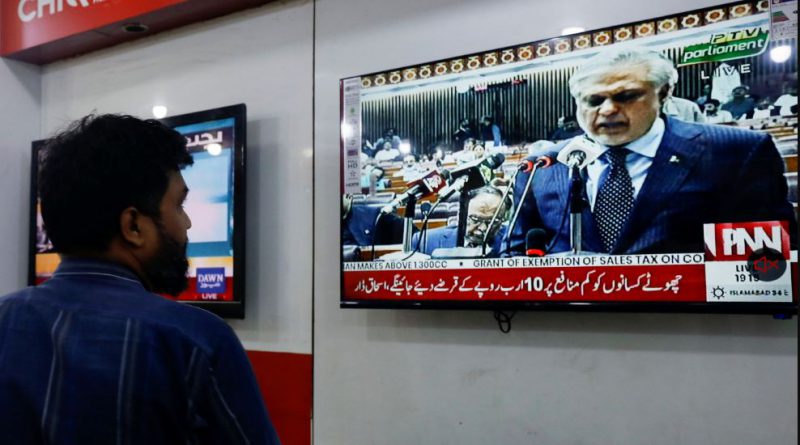Pakistan working on possible restructure of debt with bilateral lenders, finance minister says
Islamabad (Reuters) – Pakistan is working on the possibility of restructuring its bilateral debt regardless of whether it successfully completes its IMF review, the country’s finance minister said on Saturday, but reiterated it would not approach Paris club nation creditors or seek haircuts.
“We’ll see how things go,” Ishaq Dar told reporters, a day after releasing the budget for the 2023-24 financial year, referring to whether to restructure or reprofile debt as Pakistan continues to speak with the IMF about its stalled bailout funds.
“In either case we will talk to bilateral creditors,” said Dar.
Pakistan’s IMF programme runs out this month with about $2.5 billion in funds yet to be released as it struggles to strike an agreement with the lender. The country is grappling with record inflation, fiscal imbalances and critical levels of reserves that cover barely a month worth of imports.
Bilateral creditors made up $37 billion of Pakistan’s debt in the fiscal year 2021, out of which $23 billion is owed to China, according to an IMF country report released last year.
Dar told a news conference on Saturday that a projection in the government’s budget for 3.5% economic growth for the year ending in June 2024 was a “realistic target” and “on the lower side”.
Dar said he was “hopeful” that Pakistan would pass its next IMF review, the country’s ninth, but that he “didn’t think” it would clear reviews beyond that.
In the year ending this month, Pakistan’s gross domestic product (GDP) was projected to grow just 0.29%. The fiscal deficit for the following fiscal year was projected at 6.54% of GDP, according to the budget.
Dar said on Saturday there was no more room in the budget to reduce the fiscal deficit target by any further.
In addition to requirements related to the currency and budget, Pakistan is required to secure firm and credible financing commitments to close the $6 billion gap in its foreign reserves in order to unlock funding under its long-delayed ninth IMF review.
The government has received commitments of only $4 billion, mainly from Saudi Arabia and the United Arab Emirates.


